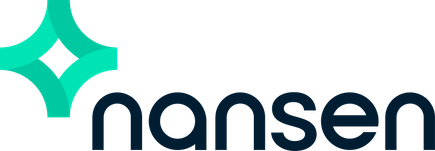Bitcoin is essentially the very first form of crypto and the grandfather of the blockchain ecosystem. Yet, believe it or not: Since the NFT space is still nascent, we have never had a true protocol to allow NFTs on Bitcoin.
Knowing this, the introduction and rise of Bitcoin ordinals has been game-changing. As a prominent NFT data platform, SimpleHash leads the pack on this development and shares those benefits with our customers.
❓ What are Bitcoin ordinals?
Let’s start with a definition. A Bitcoin ordinal is a protocol that allows individual satoshis (SATs) on the Bitcoin blockchain to be assigned a unique identifier and transacted with metadata — something that, until recently, wasn’t possible.
Now, we can differentiate one SAT from another and, more importantly, inscribe NFTs directly on a Bitcoin blockchain. In other words: ordinals enable NFTs on Bitcoin.
📣 What makes Bitcoin ordinals a game-changer for Web3 players?
To date, over 200,000 ordinal NFTs have been minted by Web3 consumers, developers, and enthusiasts interested in the potential of Bitcoin-native NFTs. In fact, the volume flowing toward Bitcoin NFTs has begun mirroring that of Ethereum — the most transacted chain by far for NFTs.
Unlike their predecessors, ordinal NFTs don’t exist on a layer separate from Bitcoin. Instead, they use ordinal theory to give every SAT a new number. At a glance, ordinal NFTs:
- Work without changes to Bitcoin’s protocol
- Are backward-compatible with Bitcoin
- Do not require any extra layers
The key difference between Bitcoin ordinals and standard NFT types is their fluidity. Bitcoin is fungible, meaning there is no way to differentiate one bitcoin from another. Meanwhile, ordinal NFTs abide by a system that numbers individual SATs — resulting in a unique ID for every single satoshi on the Bitcoin blockchain. By extension, since Bitcoin protocols do not formally recognize ordinal theory, an ordinal NFT can be either fungible or non-fungible — simply depending on whether the owner wants to preserve the individual SAT.
With this, Web3 operators and investors alike have grown increasingly drawn to ordinals. For those who want in on the hype, SimpleHash stands ready to support.
🔗 SimpleHash is a day-one player when it comes to ordinal NFTs
From day one, SimpleHash has been entrenched in the NFT ecosystem. When ordinals appeared on the scene, we immediately started prepping for the day customers would request ordinal support. After all, the first-mover advantage is central to how our team operates and critical in a young ecosystem where hype and trends drive everything.
So, how does SimpleHash simplify ordinal NFTs for Web3 leaders? Simply put: Web3 is a game of efficiency, and our offerings help you win it.
While Bitcoin is not an EVM-compatible blockchain and utilizes a completely separate wallet standard, SimpleHash’s API is still built to index that info in the same way. This enables SimpleHash users to access that valuable NFT data — as seamlessly as they would with any other chain we support. In comparison, getting up to speed on ordinals without SimpleHash requires:
- Weeks spent researching and figuring out the standard for Bitcoin ordinals
- Steep costs associated with caching and cloud storage
SimpleHash users ultimately do not need to worry about the resource drain of new standards. With our endpoints, you can query Bitcoin NFTs and EVM chains — all at once, using just one line of code. Accessing vital NFT metadata becomes frictionless.
🚀 Staying at the cutting edge of ordinals and beyond
As the world’s most comprehensive NFT API, SimpleHash stays at the forefront of the industry. Countless SimpleHash team members are active users in the same spaces as our customers, so we’re always personally invested in exploring the next big thing.
SimpleHash became an early mover on Bitcoin ordinals because we didn’t want to rush implementation when our customers came calling. That’s why we can offer you cutting-edge, yet sophisticated and reliable Web3 solutions. SimpleHash users see zero discrepancy between NFTs on Bitcoin vs. EVM chains. Most of our competitors struggle to offer this seamless standardization, so we’re especially proud to support SimpleHash users with ordinal NFTs.
Ultimately, SimpleHash provides one industry-leading, standardized schema to make your NFT data management effortless.















